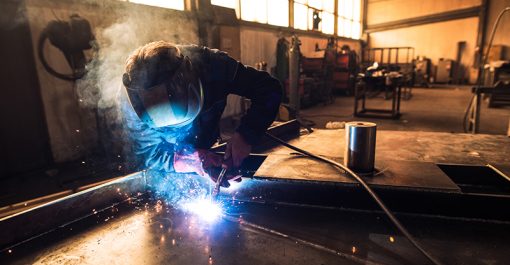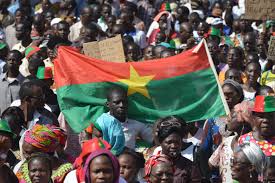In una intervista rilasciata al quotidiano francese “Le Figaro” dal vicedirettore dell’Ufficio per la comunicazione governativa del Qatar, sheikh Thamer bin Hamad al-Thani, tra gli altri argomenti affrontati figura anche quello, scottante e controverso, relativo ai decessi di lavoratori immigrati, per lo più asiatici, verificatisi nel corso dei lavori di realizzazione di impianti e infrastrutture nella petromonarchia del Golfo.
In particolare, l’esponente della famiglia regnante a Doha si è soffermato sui dati precedentemente pubblicati dal quotidiano britannico “The Guardian” in un articolo nel quale veniva denunciata la morte di migliaia di lavoratori impegnati in Qatar alla edificazione delle opere destinate al prossimo Campionato mondiale di calcio. Sempre in quell’articolo, il giornale promuoveva il boicottaggio della manifestazione sportiva nell’emirato, in calendario per il 2022.
La replica ufficiale di Doha al “Guardian”
Nella sua replica ufficiale, diffusa per mezzo dell’intervista rilasciata il 9 aprile scorso a “Le Figaro”, lo sceicco al-Thani a Le Figaro ha avuto modo di eccepire come gli inviti al boicottaggio della manifestazione sportiva nel suo Paese siano «basati su fuorviante report dei media», aggiungendo che «coloro i quali invocano il boicottaggio ignorano i progressi compiuti in Qatar per quanto concerne la riforma del lavoro», riferendosi egli alla recente legge promulgata nell’Emirato «che tutela i diritti dei lavoratori immigrati».
Hamad al-Thani ha inoltre sottolineato il fatto che «nelle ultime settimane numerose associazioni sportive, organizzazioni non governative e gruppi di tifosi delle squadre di calcio hanno compreso che un boicottaggio non sarebbe un risultato costruttivo, poiché – ha quindi ricordato – il Qatar sostiene pienamente i calciatori e le associazioni sportive che promuovono i diritti umani».
La controversia sulla cifra dei lavoratori immigrati morti
Lo sceicco ha eccepito l’asserita incongruenza del dato fornito da parte della stampa, affermando che secondo i media i lavoratori immigrati che sarebbero morti mentre erano impegnati alla realizzazione delle infrastrutture per i Mondiali ammonterebbero a 6.500, «ma si tratta di una cifra fuorviante e lontana dalla realtà», perché secondo al-Thani, essa «include tutti i decessi registrati negli ultimi dieci anni di residenti in Qatar provenienti da India, Sri Lanka, Pakistan e Nepal», persone che, «contrariamente a quanto affermato nei rapporti pubblicati dalla stampa, non tutte lavoravano nei cantieri».
Egli ha quindi inteso precisare che: «Gli immigrati da questi paesi includono anche studenti, anziani e lavoratori impiegati in uffici, esercizi commerciali, scuole e ospedali. In Qatar sono presenti oltre 1,4 milioni di persone immigrate da questi paesi, ma di esse soltanto il 20% lavora come operaio nel settore delle costruzioni, u settore nel quale è stato registrato meno del 10% dei decessi complessivi verificatisi tra il 2014 e il 2019».
Per il Qatar si tratta di «critiche fuori luogo»
Riferendosi, infine, alla recente introduzione della legge che ha smantellato il sistema della «Kafala» introducendo il salario minimo obbligatorio, al-Thani ha quindi concluso affermando che: «Le critiche alla Coppa del Mondo 2022 sono fuori luogo», in quanto «il Qatar ha compiuto progressi tangibili nel campo delle riforme del lavoro, dimostrando il proprio impegno a continuare in questo processo in cooperazione con i suoi partner internazionali».
Di seguito viene pubblicato il comunicato stampa ufficiale diffuso nella giornata di oggi dalle autorità di Doha, nel quale si richiamano alcuni passi della citata intervista rilasciata dallo sceicco Thamer bin Hamad al-Thani al quotidiano francese “Le Figaro” il 9 aprile 2021 – Deputy Director of the Government Communications Office Sheikh Thamer bin Hamad al-Thani’s interview with “Le Figaro”, 9 April 2021 –
In an interview with the French newspaper Le Figaro, Sheikh Thamer bin Hamad al-Thani, Deputy Director for Media Affairs of the Government Communications Office, confirmed that calls to boycott the 2022 World Cup in Qatar were based on misleading media reports, adding that those calling for a boycott ignored the progress the State of Qatar has made in reforming its labour law and promoting migrant workers’ rights. He said that it was good to see that in recent weeks, many football associations, NGOs and fan groups have realised that a boycott is not a constructive outcome, explaining that Qatar fully supports footballers and football associations who use their platform to promote human rights. Their criticism of the 2022 World Cup, however, is misplaced, and that Qatar has made tangible progress on labour reforms and has shown its commitment to continue the process in cooperation with its international partners.
During the interview, Sheikh Thamer bin Hamad al-Thani outlined how media reports claiming that 6,500 workers have died while working on World Cup infrastructure are both misleading and “a far cry from reality”. This figure, first reported by the Guardian, includes all deaths over the past ten years of residents in Qatar from India, Sri Lanka, Pakistan and Nepal. However, contrary to what the reports claim, not all of these people were working on construction sites.
«Expatriates from these countries also include students, the elderly, and workers employed in offices, retail shops, schools, and hospitals. Qatar has over 1.4 million expatriates from these countries. Only 20% of them are employed as workers in the construction sector, which accounts for less than 10% of all deaths between 2014 and 2019».
During the interview, Sheikh Thamer bin Hamad Al Thani said that the most significant development has been the dismantling of the “Kafala” system, with workers no longer required to obtain an exit permit to leave the country and able to change jobs as they wish. He noted that in March 2021, Qatar implemented a mandatory minimum wage, the first of its kind in the Middle East, providing additional financial security for every worker in Qatar and their families abroad.
On the health and safety front, the Deputy Director for Media Affairs of the Government Communications Office said that “the State of Qatar has raised the standards. Outdoor work is banned during the hottest hours of the day in the summer and new technology has been introduced to keep workers cool when they are on site. Modern accommodation has been built across the country for workers, and the scope of competences of labour inspectors has been extended to monitor working conditions and conditions of accommodation”. He noted that the last quarter of 2020 saw more than 7,000 sentences pronounced, ranging from minor offences to more serious offences that carried heavy fines and prison sentences. He explained that Qatar is constantly reviewing its laws to improve the conditions and rights of workers, while ensuring that the labour market is strengthened.
Commenting on cooperating with international organizations, Sheikh Thamer bin Hamad al-Thani said: «We have extended our agreement with the UN’s labour body, the International Labour Organisation in Geneva, which in 2018 opened an office in Qatar to support our labour reform programme».
Speaking on the exploitation of recruitment agencies of migrant workers, the Deputy Director for Media Affairs of the Government Communications Office emphasised the protection of migrant workers from exploitation even before their arrival in Qatar. He noted that Qatar has opened visa centres in the countries of origin of many workers, where workers can sign their contracts and undergo medical examinations prior to their departure, without having to repeat the process upon arrival in Qatar. All recruitment and related costs are borne by the employer.
«During the Covid-19 pandemic, our government has made funds available to companies for them to continue paying the salaries and rents of all workers. The State of Qatar also has a system to ensure that salaries are paid in full and on time. This system requires companies in Qatar to open bank accounts for their employees and transfer their salaries electronically. Companies that violate this system are liable to a year’s imprisonment and a fine of 10,000 riyals, which is multiplied for each violation. If they are not paid, workers may also file a complaint against their employer. These complaints are investigated by the Ministry of Administrative Development, Labour and Social Affairs and, if an amicable solution cannot be found, the worker may take the case to a special disputes court, which will seek to resolve the problem within three weeks».







